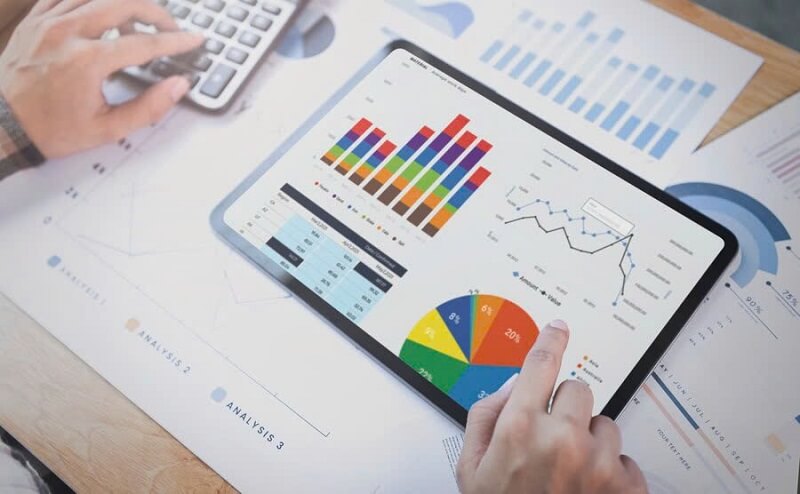Understanding Accountant Job Description in Detail
The accountant job description plays a vital role in understanding the core functions of this profession. Whether you're hiring an accountant or aspiring to become one, knowing the key duties, required skills, and expectations can help you make informed decisions. This article dives deep into everything you need to know about the role of an accountant.
1. What Is an Accountant Job Description?
An accountant job description is a comprehensive outline of the duties, responsibilities, and qualifications expected from a professional accountant. This description serves as a critical resource for both employers and candidates by defining what is required to excel in the role. It highlights not only the technical skills needed but also the personal attributes that contribute to success in accounting.

Accountants play a vital role in every organization, from small businesses to multinational corporations. Their primary function is to ensure accurate financial record-keeping and compliance with regulations. However, the scope of their responsibilities often extends to advising on financial strategy, helping organizations achieve long-term growth and sustainability.
1.1. The Purpose of an Accountant Job Description
At its core, the purpose of an accountant job description is to set clear expectations. For employers, this document acts as a guideline to attract the right talent. It defines the essential tasks, required qualifications, and specific skills necessary for success. This clarity helps streamline the recruitment process and ensures alignment between the organization’s needs and the candidate’s capabilities.
For professionals, an accountant job description is equally important. It provides insight into what employers value most in a candidate, helping individuals tailor their skills and experiences to meet these expectations. For aspiring accountants, this description can serve as a roadmap for career planning, highlighting areas they need to develop, such as technical proficiency, regulatory knowledge, or interpersonal skills.
1.2. Why It Matters in the Workplace
A clear and detailed accountant job description has far-reaching implications for workplace efficiency and effectiveness. Here’s why it matters:
Defines Accountability: By outlining specific roles and responsibilities, the job description ensures accountability. Employees know their duties, while employers can measure performance against these benchmarks.
Supports Career Development: For employees, the job description highlights the competencies they must develop to advance in their careers.
Improves Hiring Accuracy: Organizations that use precise job descriptions are more likely to attract candidates who are well-suited for the role. This reduces turnover and enhances team stability.
Enhances Organizational Compliance: By emphasizing tasks related to compliance, such as tax filings and audits, the job description helps maintain legal and ethical standards.
1.3. The Evolving Nature of Accountant Roles

The role of an accountant is not static; it evolves with changes in technology, regulations, and market demands. Modern accounting is heavily influenced by advancements in data analytics, automation, and financial software. Today’s accountants must be more than number crunchers; they are strategic advisors who provide valuable insights into business operations.
For instance, the integration of artificial intelligence (AI) and machine learning in accounting processes has transformed how tasks like data entry, reconciliation, and reporting are performed. While this automation has streamlined operations, it has also raised the bar for accountants to develop higher-level analytical and decision-making skills.
2. Key Responsibilities of an Accountant
The accountant job description typically includes a range of responsibilities that ensure the smooth operation of financial processes within an organization. Accountants are tasked with managing financial data, preparing reports, and advising on fiscal matters. Below are the key responsibilities commonly associated with this role:
2.1. Managing Financial Records
One of the primary tasks in the accountant job description is maintaining accurate and updated financial records. This involves tracking income and expenses, ensuring proper documentation of transactions, and organizing data in compliance with legal standards. Accurate financial records form the backbone of any organization's financial health.
2.2. Preparing Financial Reports
Accountants are responsible for creating detailed financial reports that provide insight into an organization’s financial status. These reports are essential for decision-making processes and often include balance sheets, income statements, and cash flow statements. A well-prepared report not only reflects the company’s performance but also guides strategic planning.
2.3. Ensuring Compliance with Laws and Regulations
An integral part of the accountant job description is ensuring that all financial activities comply with relevant laws and regulations. This includes tax filings, audits, and adhering to industry standards. Accountants work alongside various administrative roles, and understanding job descriptions for related positions, such as a job description administrative assistant, can provide context on how different roles contribute to achieving compliance and organizational efficiency.
3. Skills and Qualifications for Accountants
To excel as an accountant, candidates must possess a combination of technical expertise, analytical skills, and attention to detail. The accountant job description outlines specific qualifications and skills that are essential for this role.
3.1. Educational Background

A bachelor’s degree in accounting, finance, or a related field is typically required. Many employers also prefer candidates with certifications such as CPA (Certified Public Accountant) or CMA (Certified Management Accountant). These credentials validate an individual's expertise and dedication to the field.
3.2. Analytical and Problem-Solving Skills
Accountants must analyze complex financial data and offer solutions to improve processes or resolve issues. This requires critical thinking and the ability to interpret large volumes of information accurately.
3.3. Proficiency in Accounting Software
Modern accountants rely heavily on technology. Familiarity with accounting software like QuickBooks, SAP, or Microsoft Excel is a must. These tools streamline financial management and improve accuracy in reporting.
4. Types of Accountant Roles in the Workplace
The accountant job description varies depending on the specific role an accountant holds. From handling general ledger tasks to specialized financial operations, accountants can pursue different career paths based on their expertise and interests. Below are some of the most common types of accounting roles:
4.1. AR Accountant

An AR accountant job description focuses on managing accounts receivable, ensuring timely invoicing and collection of payments. This role requires excellent organizational skills and the ability to reconcile discrepancies in customer accounts. AR accountants often liaise with clients to resolve payment issues and maintain healthy cash flow for the organization.
4.2. Staff Accountant
The staff accountant job description includes general accounting duties such as preparing journal entries, reconciling bank accounts, and assisting in month-end closings. Staff accountants work closely with senior accountants to maintain accurate financial records and support audits. This is often considered a foundational role for those starting in the accounting field.
4.3. Senior Accountant
A senior accountant job description encompasses leadership in financial reporting and analysis. Senior accountants oversee junior staff, review financial data for accuracy, and provide strategic insights to management. They are instrumental in identifying cost-saving opportunities and ensuring compliance with regulatory standards.
5. Writing an Accountant Job Description for a Resume
Including a well-crafted accountant job description for a resume is crucial for showcasing your skills and experience. A resume tailored to the job requirements can significantly increase your chances of being noticed by employers.
5.1. Highlight Key Responsibilities
When writing your resume, emphasize responsibilities that align with the job you are applying for. Use action verbs like "managed," "analyzed," and "prepared" to describe your contributions effectively. For example:
Managed financial records for a mid-sized company with $5 million in annual revenue.
Prepared monthly financial reports, ensuring 100% compliance with regulatory standards.

5.2. Showcase Relevant Achievements
Employers look for candidates who have demonstrated measurable results. Highlight achievements such as reducing costs, streamlining processes, or increasing revenue through effective financial strategies.
5.3. Include Certifications and Skills
Certifications like CPA or CMA add credibility to your resume. Additionally, mention technical skills, such as proficiency in accounting software or advanced Excel functions, which are valuable in most accounting roles. Presenting these qualifications effectively in your resume not only increases your chances of landing an interview but also demonstrates your readiness for success when you receive a job offer letter.
6. Junior and Assistant Accountant Roles
For those starting in the accounting field, the junior accountant job description and assistant accountant job description provide a foundation to develop skills and gain experience. These roles focus on entry-level tasks, offering opportunities to learn and grow within the profession.
6.1. Junior Accountant
A junior accountant job description typically involves assisting senior accountants with basic accounting tasks. These may include preparing invoices, reconciling accounts, and updating financial records. The role is ideal for recent graduates looking to gain hands-on experience in the field.
6.2. Assistant Accountant

An assistant accountant job description emphasizes administrative support. This role includes handling routine tasks like data entry, maintaining records, and preparing documents for audits. Assistant accountants work under the supervision of senior staff, providing a stepping stone to more advanced positions.
7. Challenges Faced by Accountants
The accountant job description often involves handling complex financial tasks, which come with their own set of challenges. Understanding these challenges can help accountants better prepare for their roles and excel in their careers.
7.1. Keeping Up with Changing Regulations
One major challenge in the accounting profession is staying updated with evolving laws and regulations. Tax codes, compliance requirements, and industry standards change frequently, requiring accountants to continually educate themselves to remain compliant and effective in their roles.
7.2. Managing Large Volumes of Data
Accountants handle vast amounts of financial data daily. Ensuring accuracy and avoiding errors in such a high-pressure environment can be demanding. Implementing robust data management systems and tools can mitigate these challenges and improve efficiency.
7.3. Balancing Workloads During Peak Seasons
Accounting deadlines, such as tax filing periods or fiscal year-end reporting, often lead to heavy workloads. Accountants must manage time effectively to balance competing priorities without compromising the quality of their work.
Conclusion
In summary, the accountant job description encompasses a wide range of responsibilities, skills, and challenges that make the profession both demanding and rewarding. Whether you're considering a career in accounting or looking to hire the right candidate, understanding the key aspects of this role is crucial.
The diverse opportunities within accounting, from junior roles to senior positions, allow professionals to grow and specialize in areas that align with their interests. With a combination of technical expertise, analytical skills, and adaptability, accountants play a vital role in shaping the financial health and success of organizations.
The accountant job description serves as a roadmap for success, guiding both employers and professionals toward achieving their goals in the field of finance.
- Essential Job Description Supervisor Guide for Success
- Essential Job Description Sales Guide for Success
- Job Description Restaurant Manager – Roles & Skills
- Understanding the job description project coordinator role
- Job Description HR Assistant—Roles and Responsibilities
- Essential Guide to Job Description COO
- Comprehensive Job Description Admin Assistant Insights
- A Comprehensive and In-Depth Job Description for HR Generalist
- Comprehensive Guide: Job Description Executive Chef
- Top 5 Best Job Search Sites for Easy Job Applications
- QA Job Description: Key Skills and Roles in 2025
- The Complete Clerk Job Description Guide
- What Is Your Greatest Weakness? Mastering the Answer
- Master the Phone Interview for Career Success
- Crafting the Perfect CV Personal Statement
- What is a Job Description Warehouse Worker?
- Detailed job description teller bank for career growth
- Comprehensive Job Description Store Manager Guide
- Comprehensive Guide to Job Description Personal Assistant
- Comprehensive Guide to Job Description Nursing Assistant
- Comprehensive Job Description Graphic Designer Guide
- Comprehensive Job Description Chief of Staff Guide
- Comprehensive Job Description Cleaner Guide
- Comprehensive Job Description Assistant Manager
- Comprehensive Guide to Job Description Account Executive
- Comprehensive Guide to Secretary Job Description
- Comprehensive Job Description of Teaching Assistant
- Comprehensive Job Description for a Social Media Manager
- Mastering STAR Interview Techniques: The Ultimate Guide
- “I Hate My Job” – What You Should Do Next
- What Is a Job Description Team Leader?
- A Complete Guide to Job Description Sales Assistant
- Comprehensive Job Description for Security Guards
- Detailed Job Description for HR Manager
- The Ultimate Guide to Job Description Medical Assistant
- Job Description Housekeeping: Key Roles & Responsibilities
- Job Description Merchandiser: Key Roles & Skills
- Job Description Product Manager: Roles and Responsibilities
- Job Description Account Manager: Roles and Responsibilities
- Job Description Marketing Manager: Roles & Skills
- Job Description HR: The Essential Guide for HR Professionals
- Best Jobs for Introverts: Top Careers for Quiet Thinkers
- What is Your Greatest Strength? How to Answer Effectively
- Job Description Data Entry Guide
- Detailed Job Description Sales Manager Guide
- The Importance of Work Experience on a Resume
- Comprehensive Job Description Sales Representative Insights
- Comprehensive Job Description of Project Manager
- Job Description Executive Assistant: Key Responsibilities
- Job Description for Sales Executive: Key Roles and Skills
- Job Description Customer Service Roles
- Job Description Business Analyst: Roles and Skills
- Comprehensive Job Description for a Receptionist
- Mastering the Sales Associate Job Description
- Understanding Accountant Job Description in Detail
- Hard Skills vs Soft Skills: Key Differences and Examples
- Why Do You Want to Work Here? Best Answer and Examples
- How to Decline a Job Offer Politely and Gracefully
- Comprehensive Job Description of Waitress
- Job Description Cashier: Key Responsibilities and Skills
- Where Do You See Yourself in 5 Years?
- Mastering Problem Solving Skills for Career Success
- Effective Job Description Sample Guide
- Behavioral Interview Questions Guide
- Comprehensive Job Description for an Administrative Assistant
- Essential Job Titles for Career Success
- Master Leadership Skills for Effective Management
- How to Write a Perfect Motivational Letter
- CV vs Resume: Understanding the Key Differences
- Top Reasons for Leaving a Job Today
- What Is a Resignation Letter? Key Details You Must Know
- How to Write a Perfect Job Application
